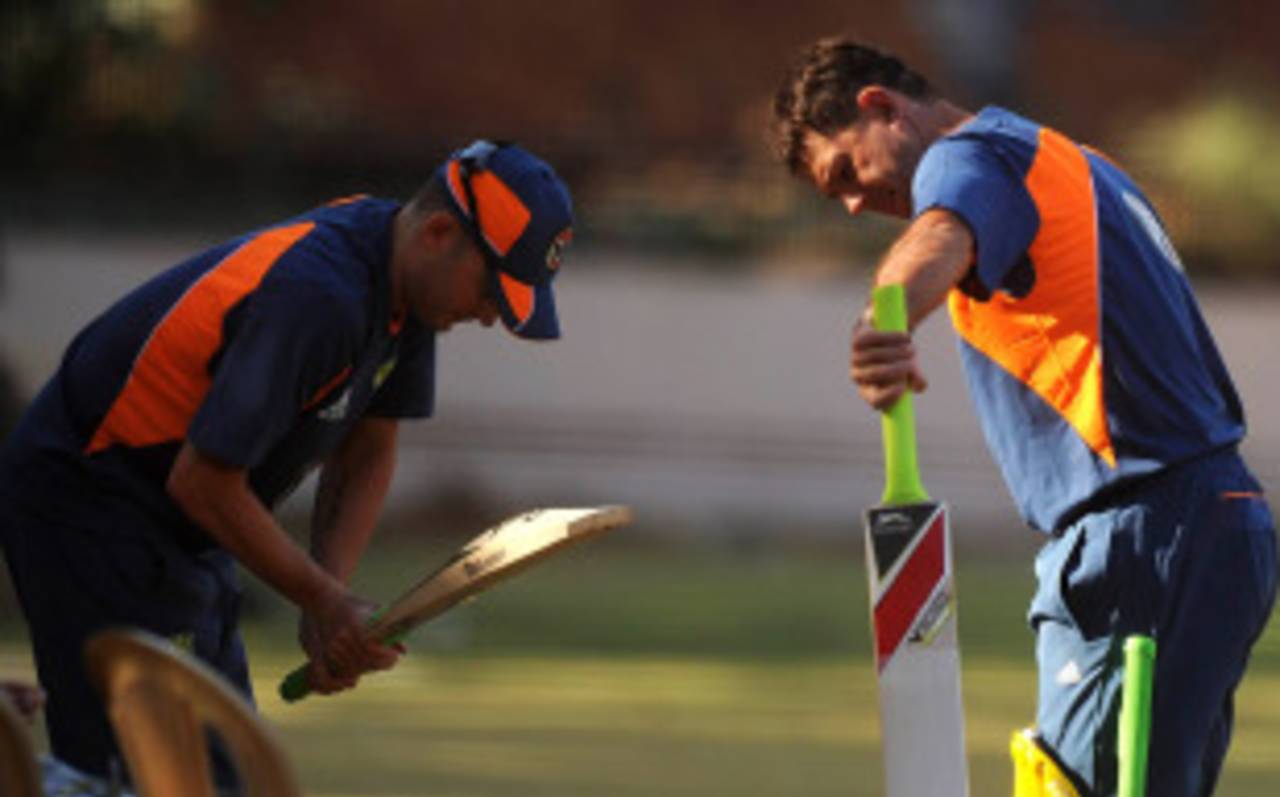Having waited so long to hear his path to the Australian captaincy was no longer blocked by the seemingly ageless Ricky Ponting,
Michael Clarke was caught off-guard by the moment. Clarke's first reaction to Ponting's morning phone call was to say that he wished he had known of the senior man's intentions a little earlier, so better to help with his leader's final days at the World Cup on the subcontinent.
There were portents of good about this, for it conveyed Clarke's innate desire to help his team and teammates, an attitude enjoyed by the players who have sampled Clarke's captaincy in Twenty20 and one day matches.
But there was also the sobering realisation that from this day forward, Clarke cannot afford to be caught off-guard - anytime, anywhere.
Few captains have enjoyed, or endured, an apprenticeship as lengthy as Clarke's. Ponting himself was never completely sure of becoming Test skipper until the moment it was announced, as first Shane Warne, and then Adam Gilchrist, also had persuasive claims. Instead of worrying about something that was out of his hands and perhaps never going to land in them, Clarke has trained, played and toured with the ever-present knowledge that he was highly likely to be next. At the start of the Ashes summer, chairman of selectors Andrew Hilditch stated flatly to the Cricket Australia board that there was no-one near Clarke in the race to become the next leader, and no-one likely to be. Vacating the position, Ponting offered an endorsement every bit as conclusive as that of Hilditch.
Clarke has long shown a natural flair for the captaincy, and an ability to elicit strong responses from those players placed under him. Revered by younger teammates if not always loved by older ones, Clarke has boundless energy and plenty of tactical ideas, plus an affinity for spin bowling that Ponting was never able to grasp. There is curiosity in the fact that widespread popular affection has eluded Clarke so far, but it is a truism of leadership that the best do not overly concern themselves with opinion polls. He will need to be far more preoccupied by the task of extracting the very most from the players under him. They are not the copiously talented and supremely confident bunch that Ponting inherited in 2004, having rather more in common with the struggling souls Allan Border took command of, in the wake of a tearful Kim Hughes, 20 years ago.
One problem with Clarke's long wait for the job is that, unlike Border, there is some suspicion his batting may have begun to wither on the vice-captain's vine. Clarke's Ashes series was every bit as wretched as Ponting's, and before that he floundered in two Tests in India, previously known as the scene of an ebullient century on his 2004 debut. Even now, the weight that can be ascribed to Clarke's apparent batting resurgence in limited overs matches in 2011, is questionable next to a lack of recent Test match runs. Apart from his earlier days when vibrant strokes were offset by inconsistency, Clarke is not a batsman with the sort of presence often seen among Australian captains. In paring back his strokeplay to pursue a steadier runs return, Clarke lost some of his earlier verve, and chronic back problems have also conspired against him at times across his career.
Counterbalancing this is the fact that Ponting's exit has been timed with the maximum consideration for Clarke, allowing him to ease himself towards leadership with a three-match limited overs series in Bangladesh and then a four-month spell at home to grasp the complexities of the job. Clarke will need every second of this, because his captaincy skills are to be tested most severely by back-to-back tours of Sri Lanka and South Africa. On his team's return home they will face a New Zealand side no doubt hoping to capitalise on tour fatigue, before there is the small matter of a four-match Test series against current world No. 1 India, followed by a trip to the Caribbean. This calendar will be either the making or the breaking of Clarke, and the ultimate measure of whether his apprenticeship has been as thorough as it has been longwinded.
